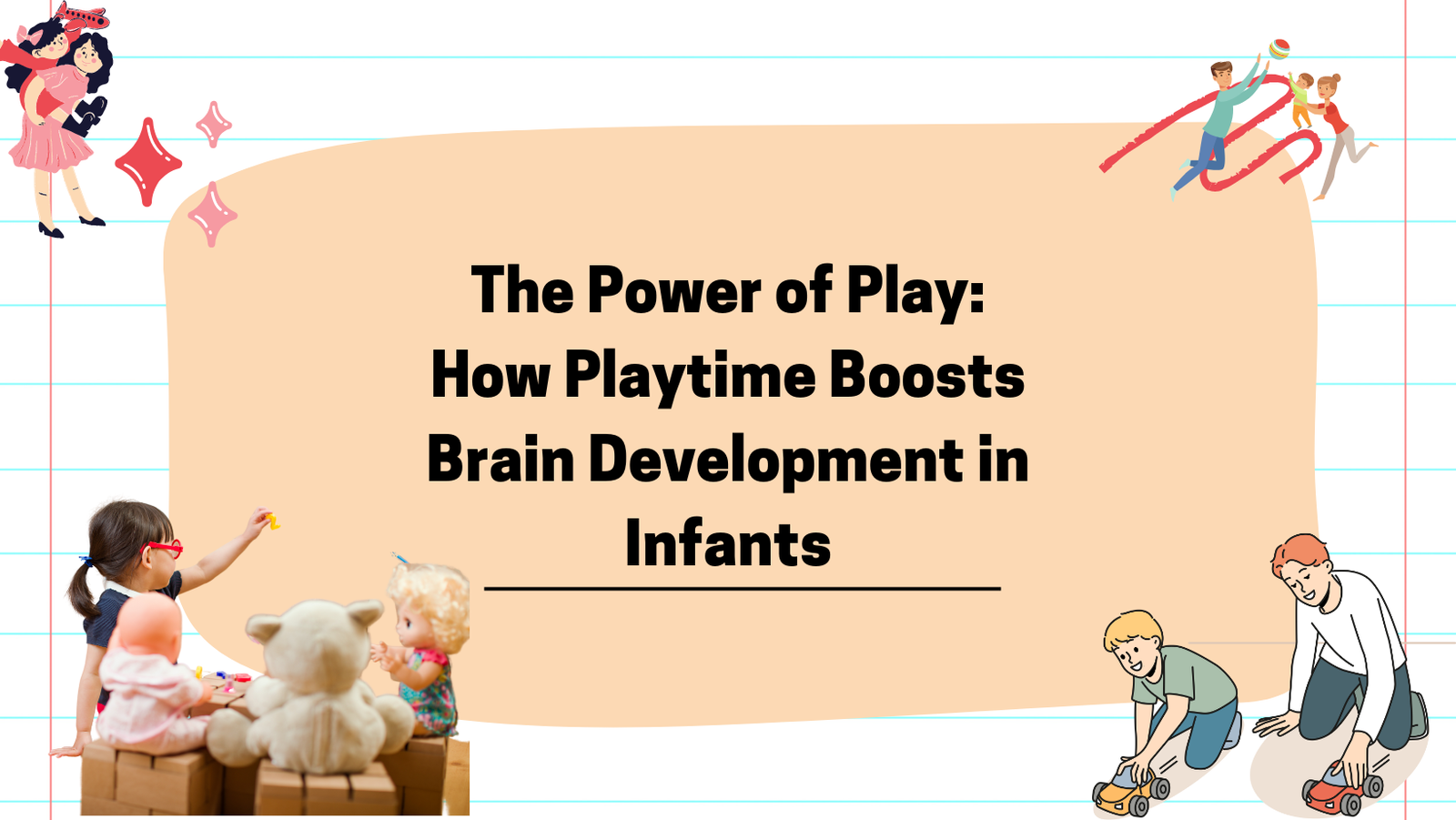
Playtime is not just a fun and enjoyable activity for infants; it is a crucial component of their overall development. Play provides a multitude of benefits for babies, including enhancing their cognitive, social, emotional, and physical development. In this blog, we will explore the importance of infants play and how it contributes to the remarkable process of brain development.
Stimulating Sensory Exploration
Playtime offers infants an opportunity to engage in sensory exploration, which is essential for their brain development. Through play, babies can touch, taste, smell, see, and hear various objects and stimuli in their environment. These sensory experiences stimulate the neural pathways in the brain, helping to strengthen connections and build a foundation for future learning.
Cognitive Development and Problem-Solving Skills
Play is a natural way for babies to develop their cognitive skills. As they manipulate objects, solve simple puzzles, and engage in imaginative play, they are actively exercising their brains. Playtime helps infants develop their problem-solving abilities, spatial awareness, and cause-and-effect understanding. Whether it’s stacking blocks, fitting shapes into corresponding holes, or exploring different textures, these activities challenge their minds and promote cognitive growth.
Language Acquisition
Play provides an ideal setting for infants to develop their language skills. When parents or caregivers engage in interactive play with their babies, they introduce new words, sounds, and gestures, which help expand their vocabulary and language comprehension. Talking, singing, and reading to babies during playtime not only strengthens the caregiver-child bond but also lays the foundation for future communication and literacy skills.
Emotional and Social Development
Playtime plays a significant role in the emotional and social development of infants. Through play, babies learn to express and regulate their emotions. It offers them a safe space to experiment with different feelings and practice social interactions. Play also encourages cooperation and turn-taking, promoting essential social skills. Whether engaging in peek-a-boo, pretend play, or interactive games, infants develop empathy, emotional resilience, and the ability to understand and connect with others.
Motor Skills and Physical Development
Playtime provides ample opportunities for infants to develop their motor skills and coordination. From reaching and grasping objects to crawling, rolling, and eventually walking, babies refine their gross motor skills through play. Similarly, fine motor skills are enhanced by manipulating small objects, stacking blocks, or engaging in finger painting. These physical interactions not only strengthen their muscles but also improve hand-eye coordination and overall physical dexterity.
Reference from The Importance of Play: How Kids Learn by Having Fun and The Importance of Play for Child Development
Playtime is a powerful tool that nurtures various aspects of infant development, including cognitive, social, emotional, and physical growth. By engaging in play with their babies, parents and caregivers can create a stimulating and supportive environment that promotes optimal brain development. So, let’s cherish those playful moments, as they are not only enjoyable but also instrumental in shaping the incredible journey of a baby’s early development. Join Super Daily Program to know such scientific facts of Baby’s brain development.
